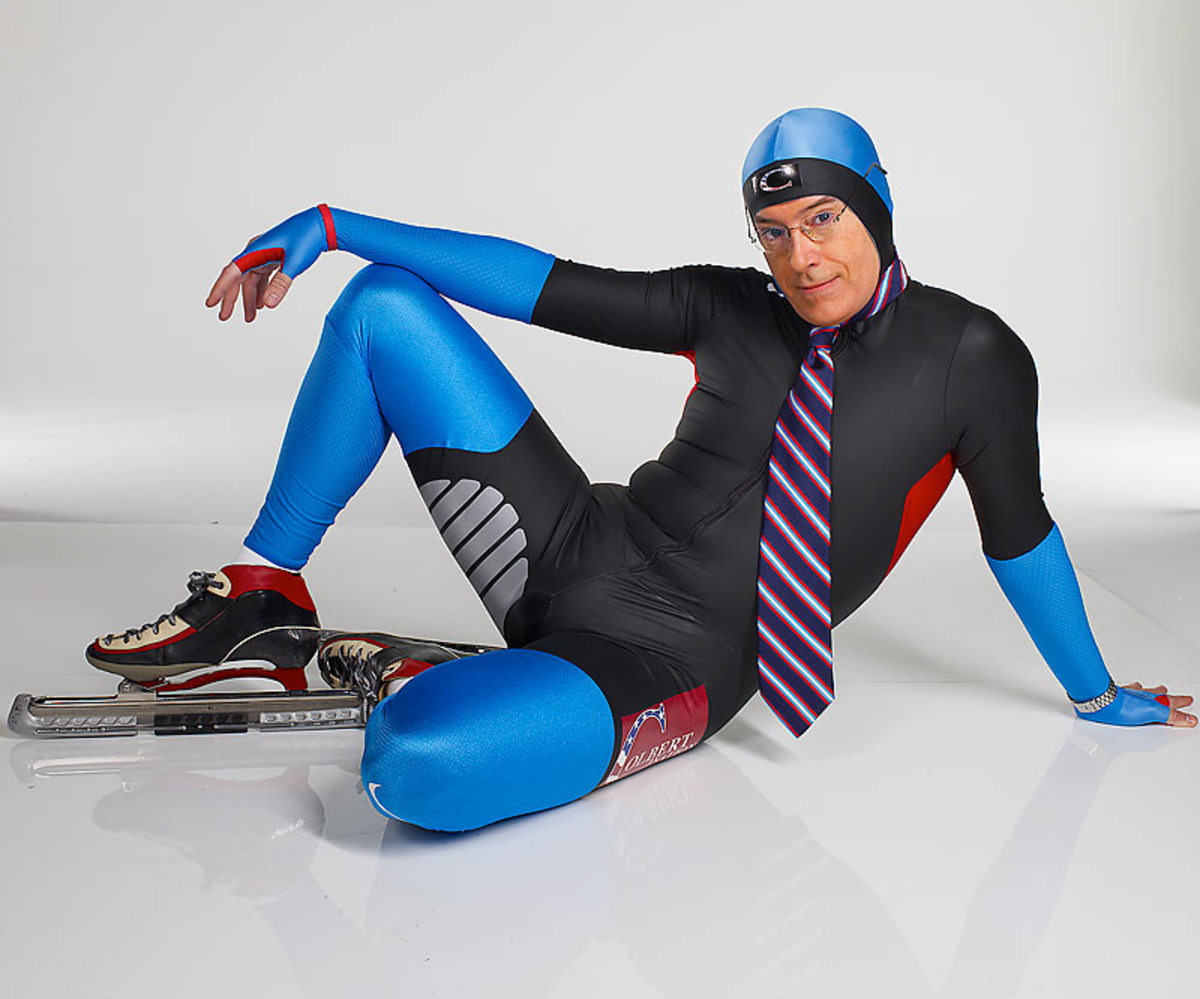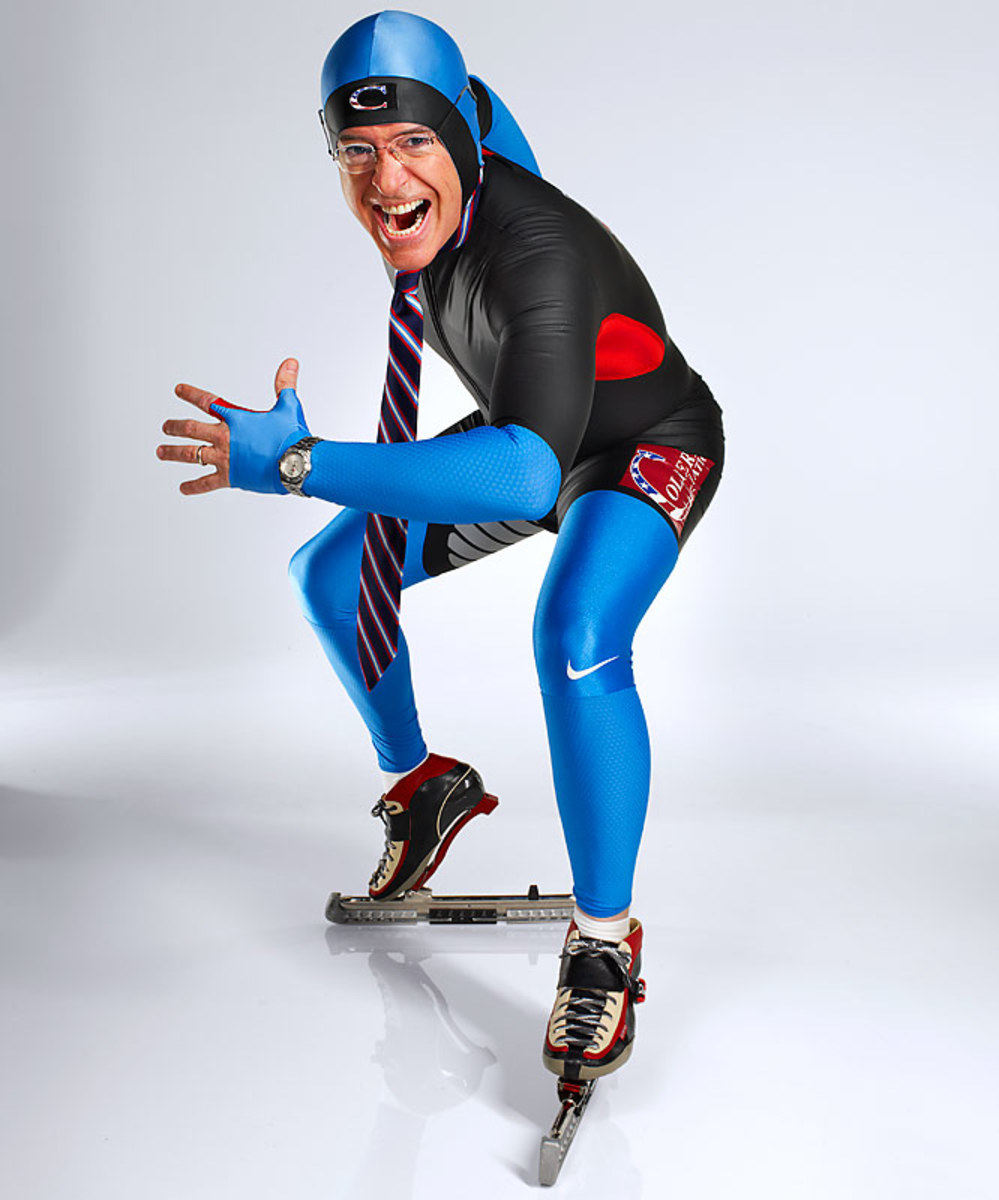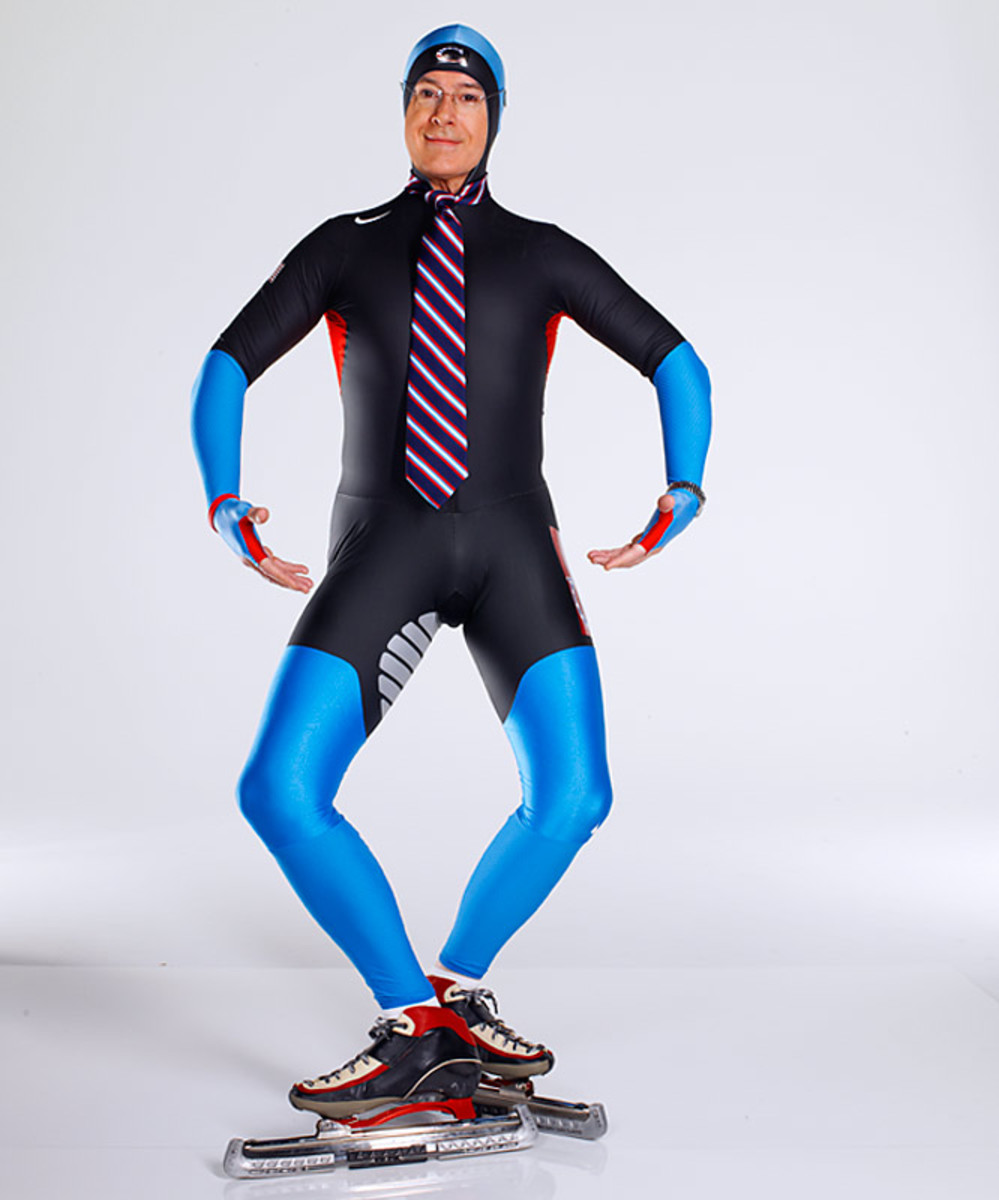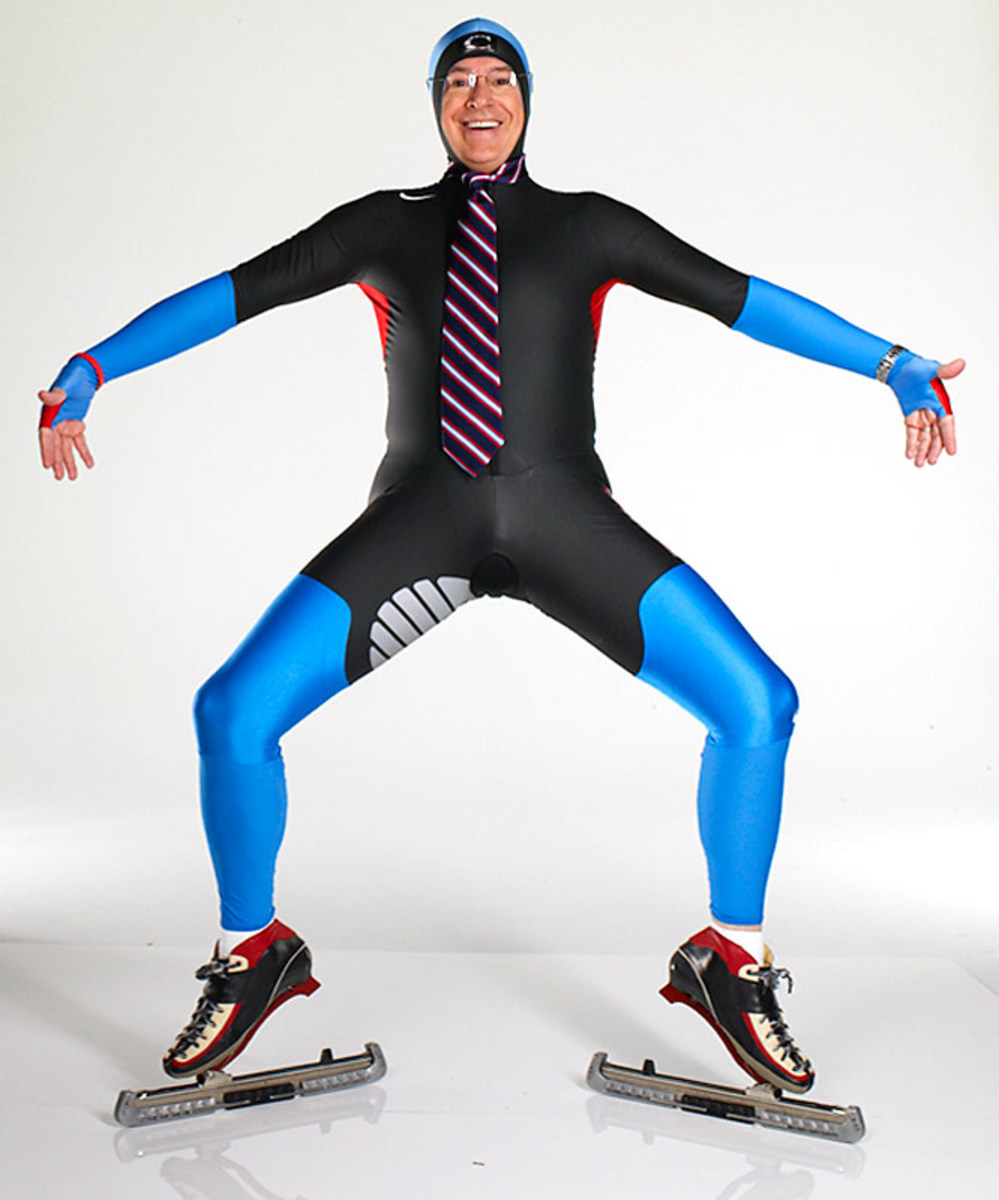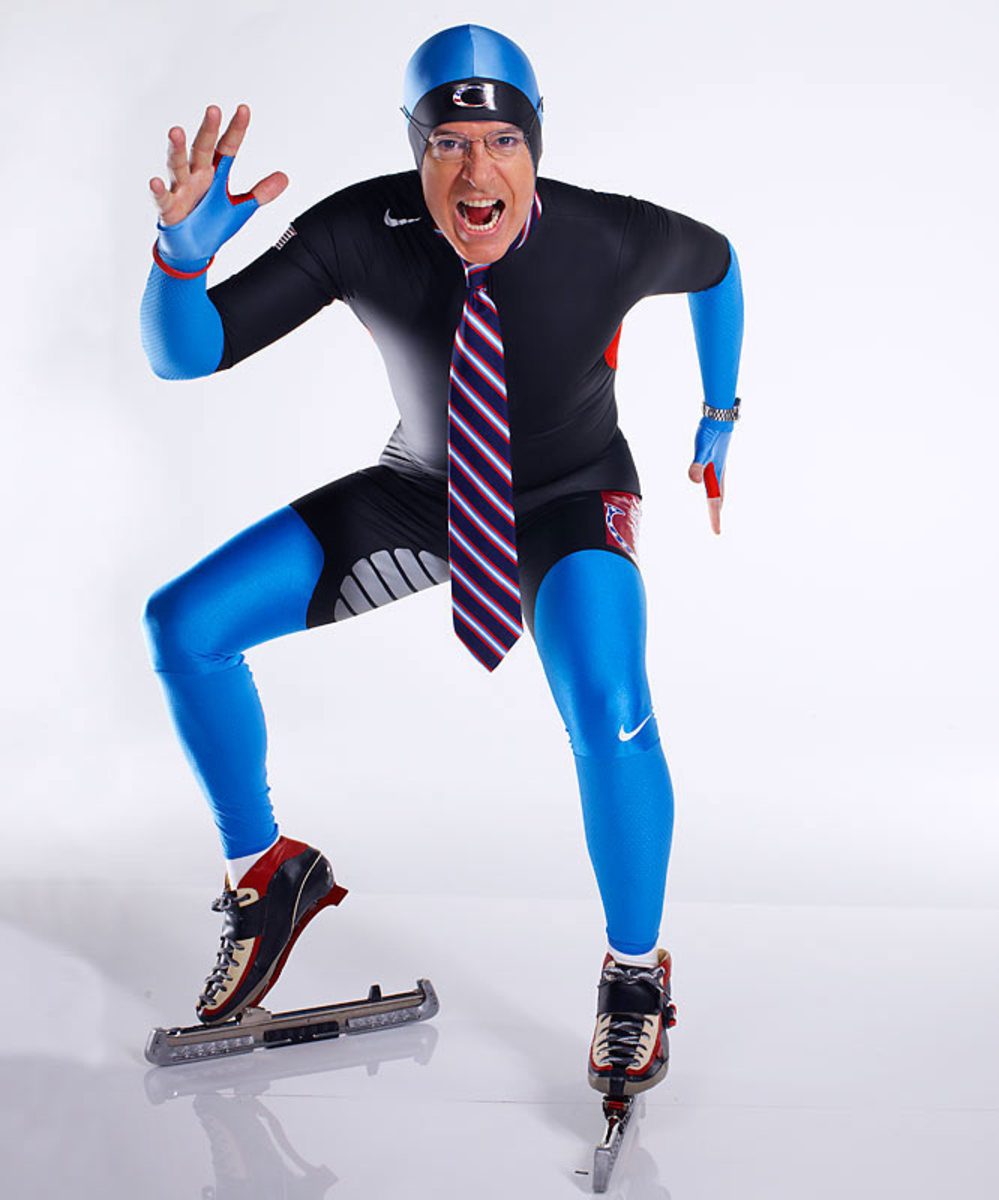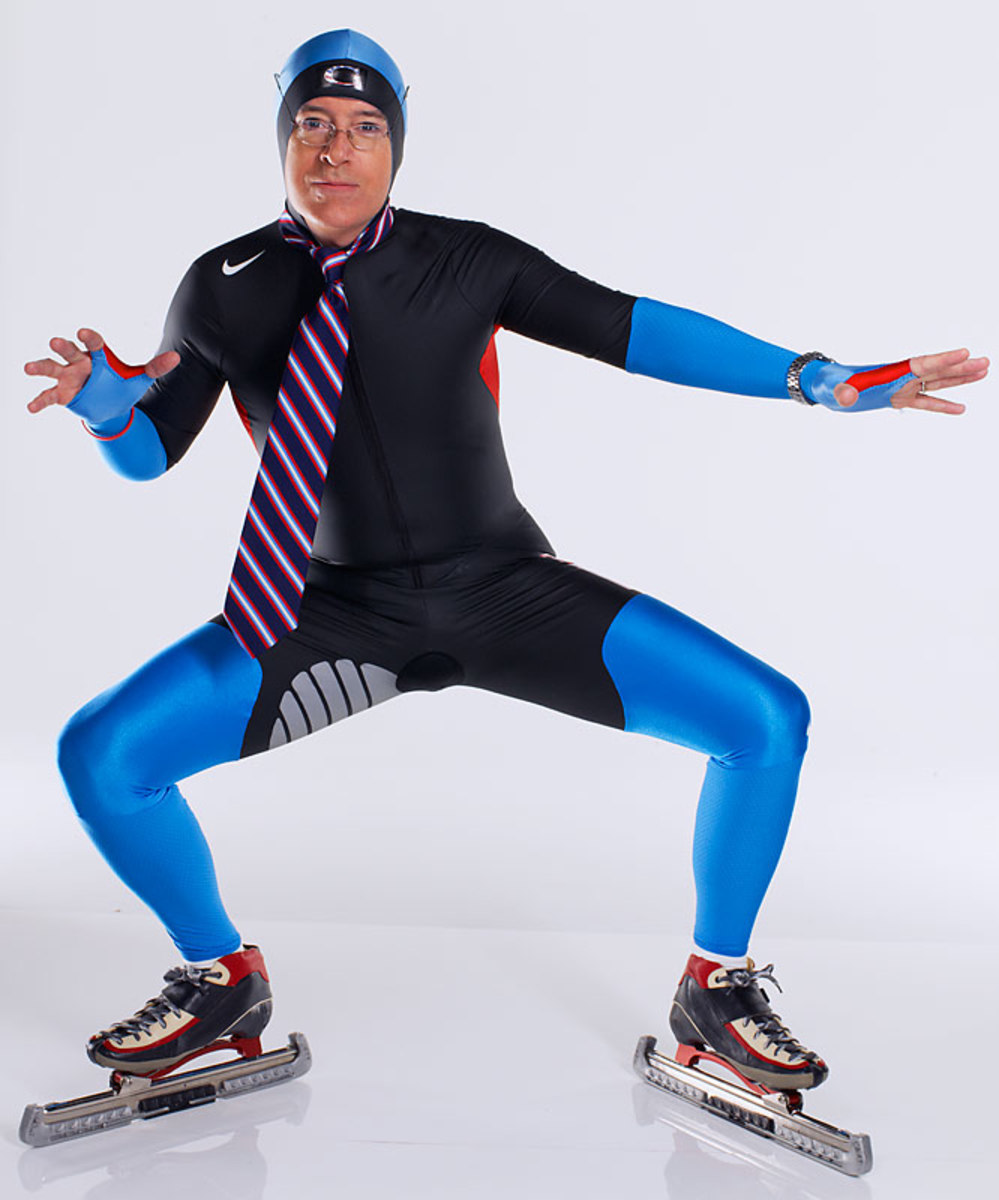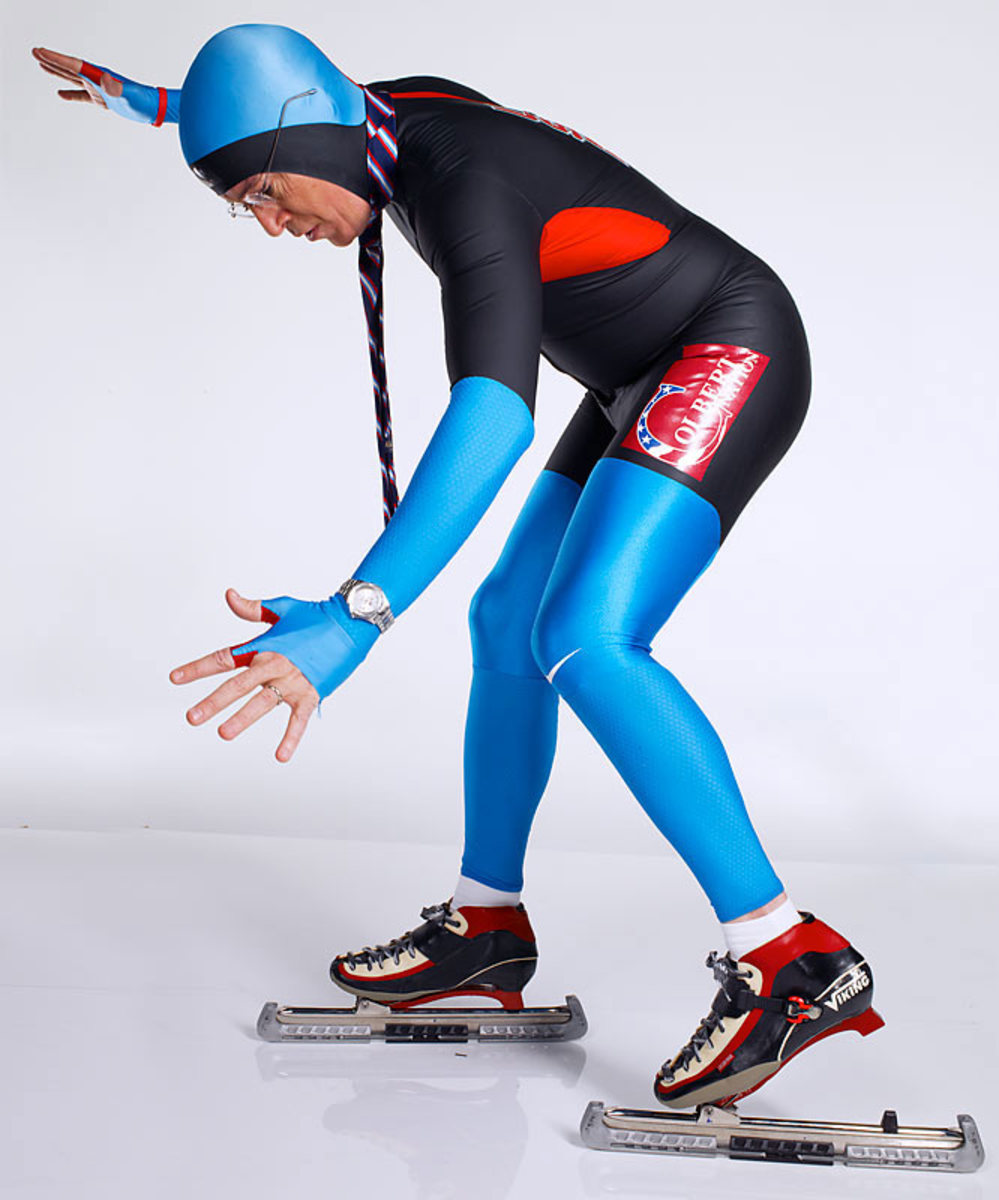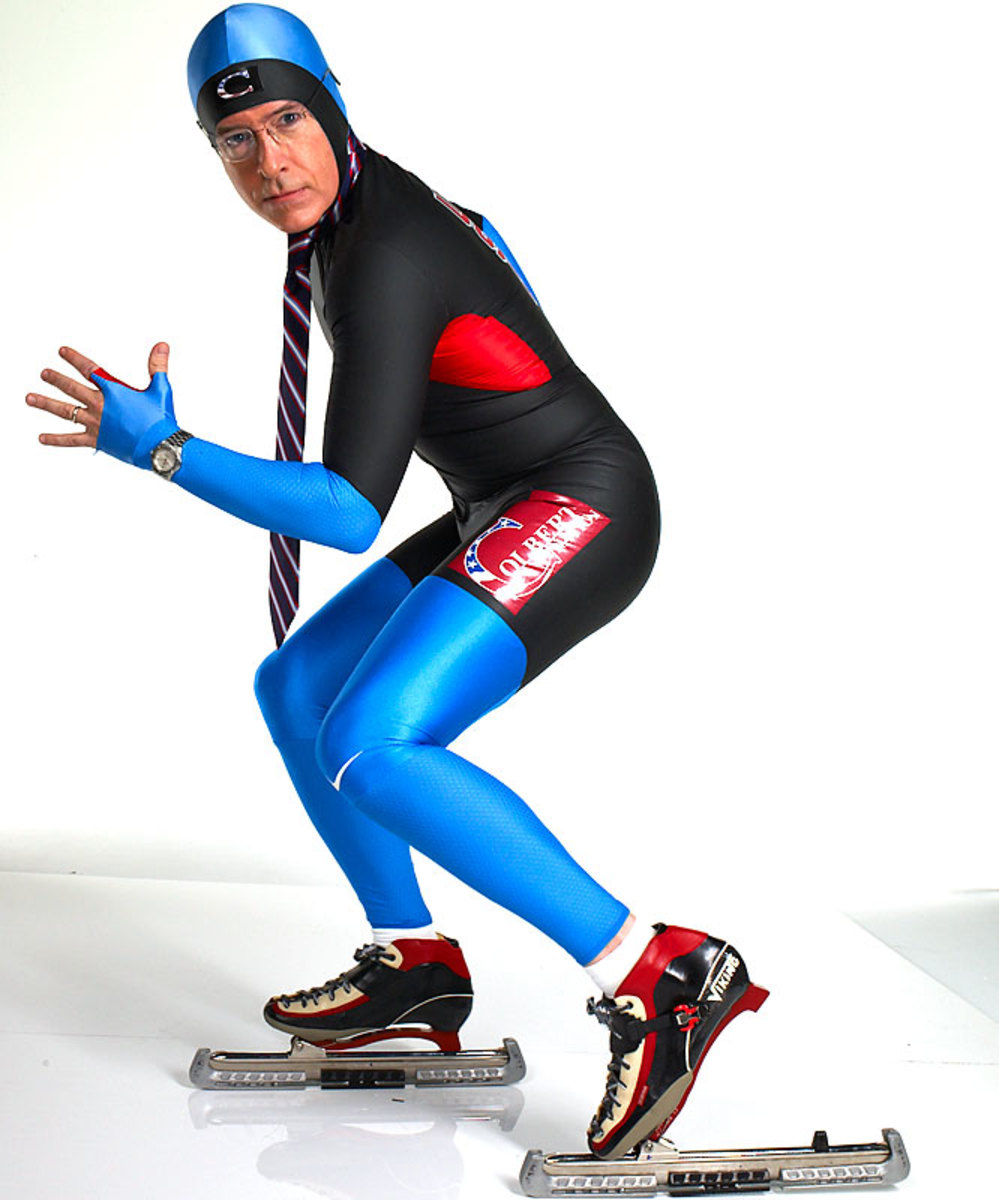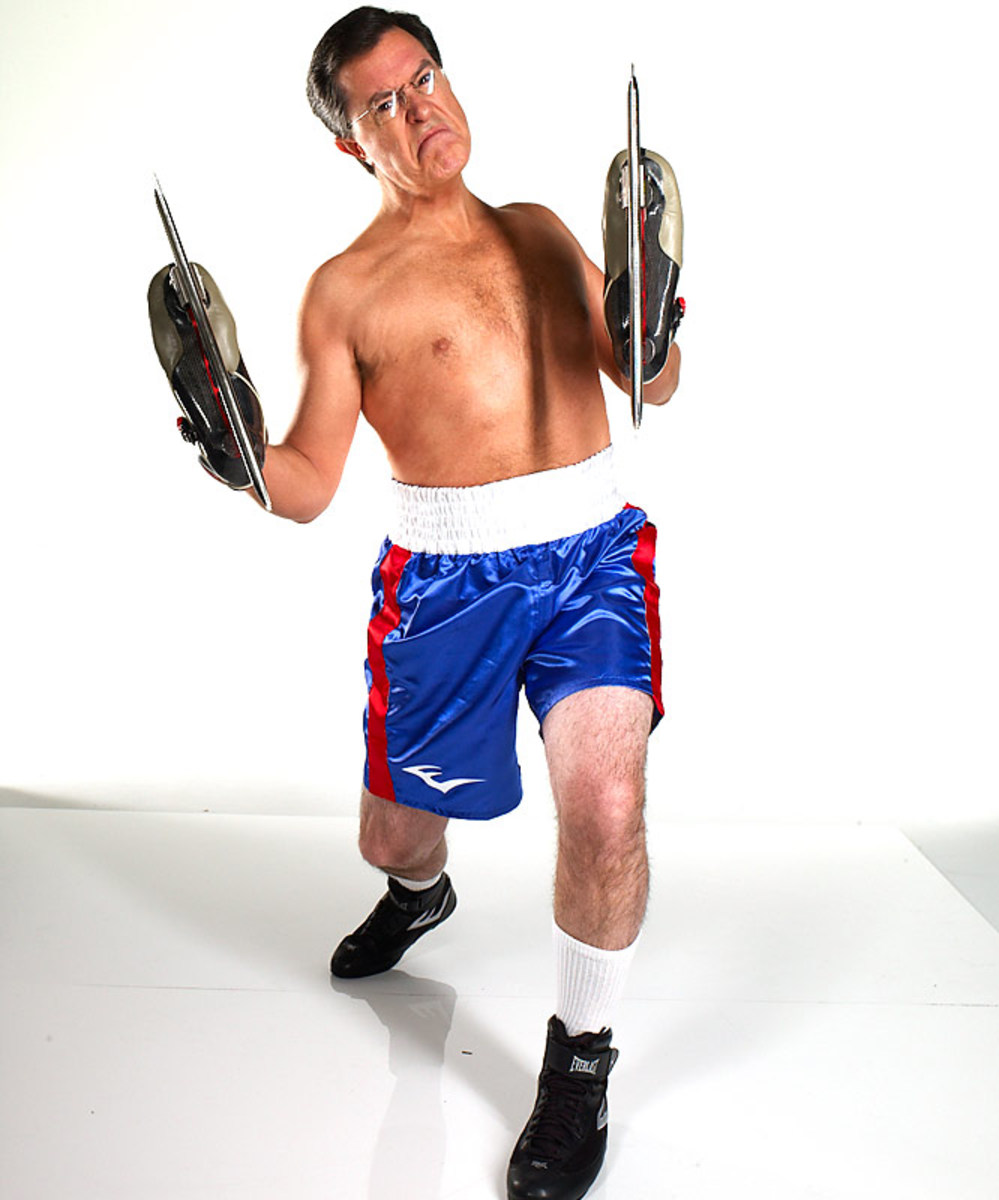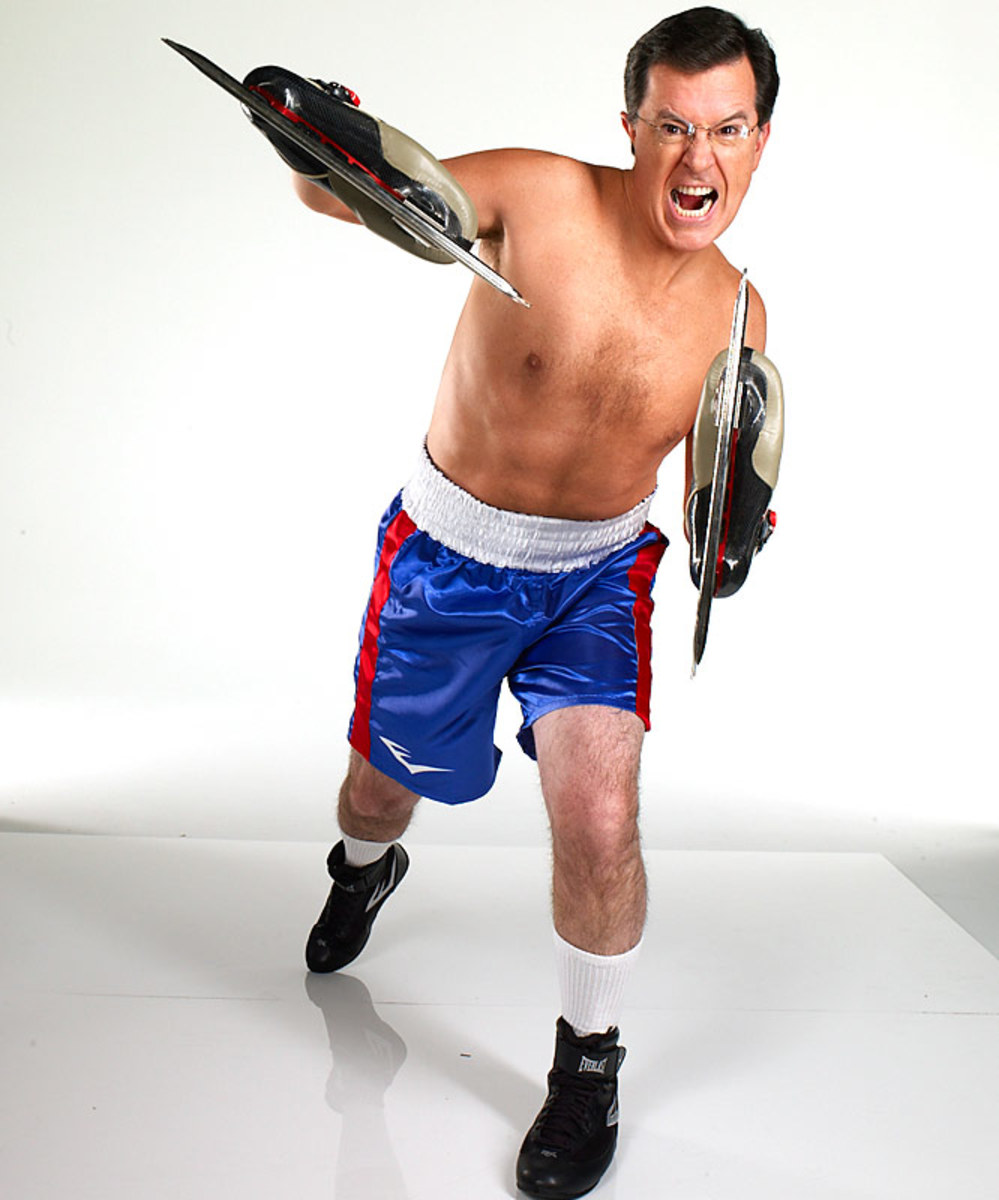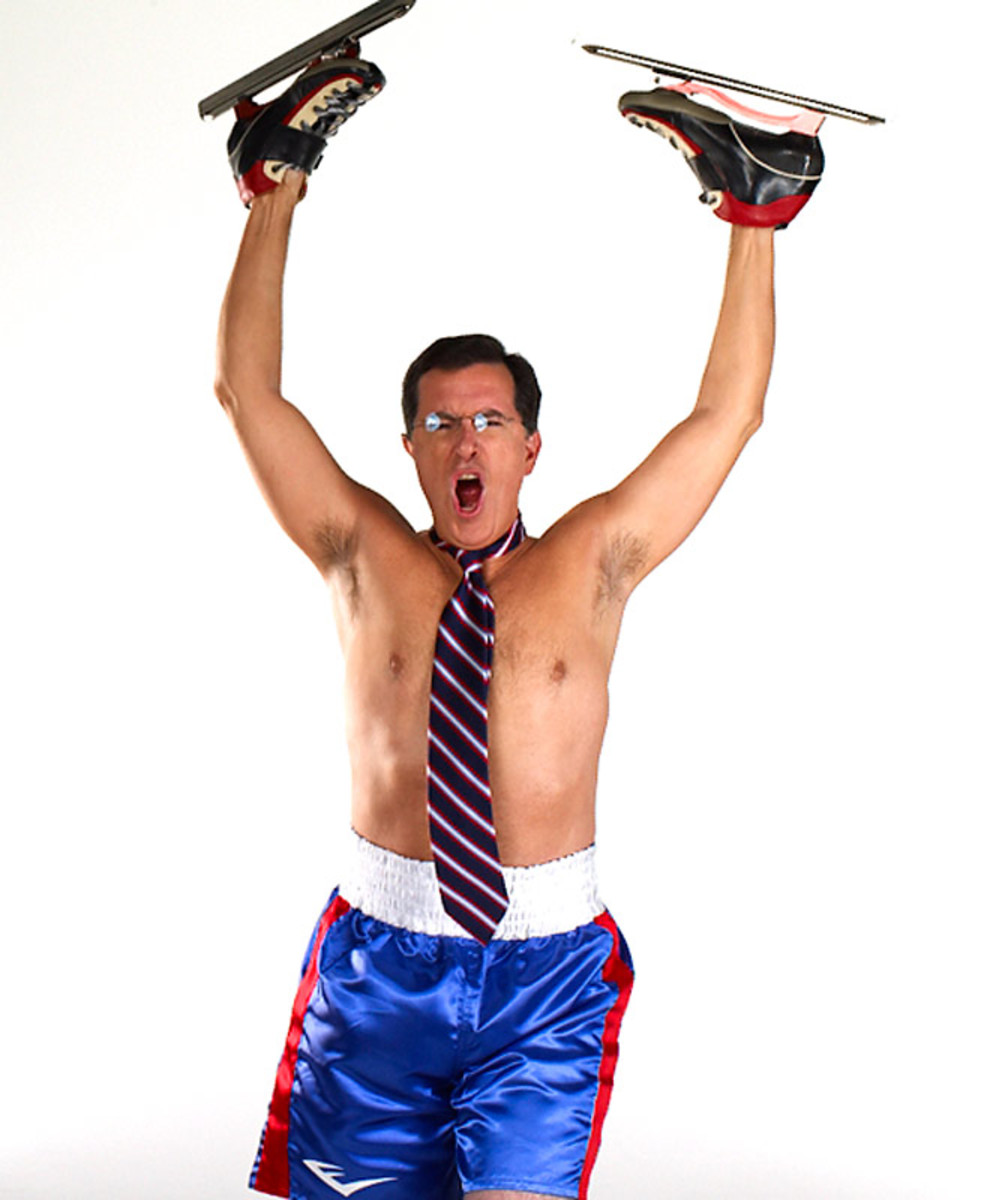From the Vault: Stephen Colbert and his Nation save the Olympics

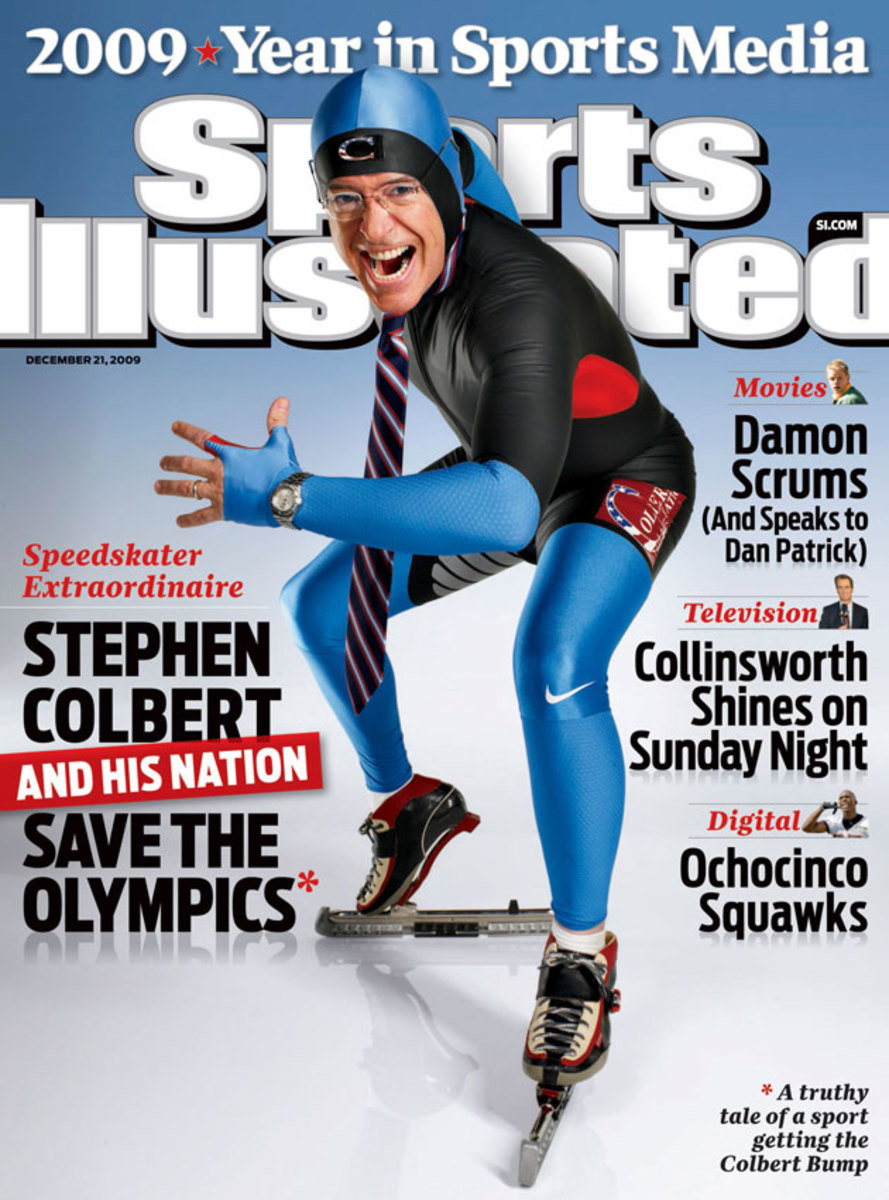
This story originally appeared in the Dec. 21, 2009, issue of Sports Illustrated. Subscribe to the magazine here or buy back issues here.
The Berlin Wall is long gone, but every four years, when the world's best winter athletes gather in some exotic snowy locale, a cold war still rages in the Brooks Brothers-enwrapped heart of Stephen Colbert. "My character is a patriot, and he believes that the Olympics are war," the comedian says of his TV alter ego, the self-aggrandizing, jingoistic spawn of Bill O'Reilly and Ann Coulter who hosts Comedy Central's The Colbert Report. "It's a way to prove who's got the best country. Only nobody gets hurt."
With that in mind, Colbert and his staff were brainstorming in late October, trying to figure out a way to work bits about the upcoming Vancouver Games into the show. Colbert was itching to make the Olympics important to Colbert Nation, an army of fans who, like NASCAR rooters and Obama campaign volunteers, march on that fine line between dedicated supporters and cult followers. "We wanted to get everyone focused on [the Games]," he says. "And saber rattle—in the nicest possible way, of course."
U.S. Speedskating was casting about too. With the Games four months away, the most successful U.S. Winter Olympics program (75 alltime medals, the most of any sport) was on thin ice. The Dutch bank DSB, the program's largest corporate cash sponsor, became a victim of the recession, going under just weeks after marketing staffers had called USS to nail down the company's Olympic ticket allotment. Suddenly, U.S. Speedskating was staring at a $300,000 shortfall in its Olympic budget. "We were stunned," says USS executive director Bob Crowley. "We were looking for a knight in shining armor."
That's precisely how Colbert—the character, not the person—sees himself. Over the years the host has mobilized his Nation to support causes both serious (the Yellow Ribbon Fund, a charity for military families) and ludicrous (a petition to name a node of the International Space Station after him). Colbert is no sports nut, but he had an appreciation for speedskating (Olympic medalist Joey Cheek has been on the show several times), and coming to the rescue of a team abandoned by a failed corporate behemoth presented irresistible comic opportunities. So Colbert called Crowley with a plan: The host would promote speedskating on the Report and encourage viewers to donate money to the Olympic team through the show's website. In return U.S. skaters would wear Colbert Nation logos on their skinsuits. "I don't know if he blinked," Colbert says. "It was long distance."
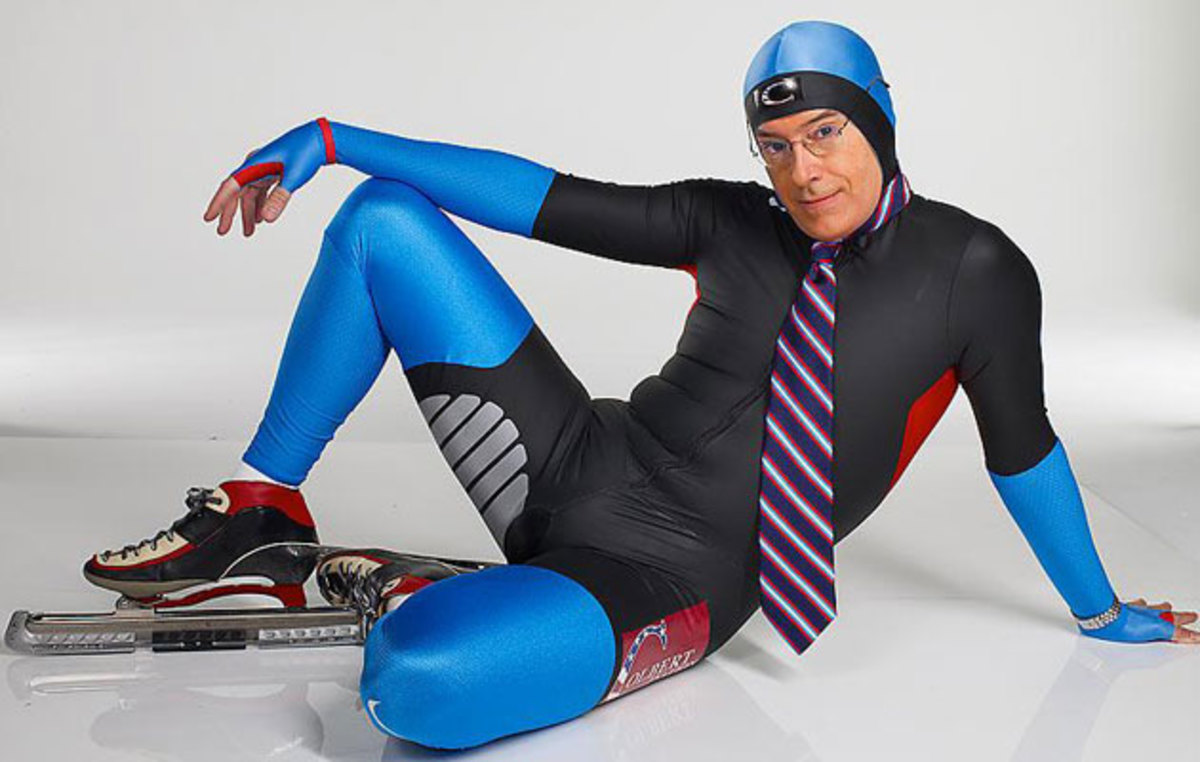
Colbert couldn't guarantee money would roll in, but Crowley jumped at the lifeline. True, he was desperate. But he also sensed a chance to create buzz for his sport, and he was struck by Colbert's sincerity in wanting to help the team, not make fun of it. "They look like members of Blue Man Group," says Colbert, "but beyond that there's nothing comedic about speedskating. These are incredible athletes. My character isn't ironically detached, he's ironically a-ttached—things are important to him. And right now we're here for speedskating."
On Nov. 2, four days after Colbert called, Crowley appeared on the show with former Olympian Dan Jansen to announce a deal. And the show's fans have responded. More than $200,000 was raised for U.S. Speedskating in the first week; as of Sunday the team was just short of the $300,000 needed to fill the void left by DSB. Nearly 9,000 individual donors (average donation: around $30) had contributed. And two months out from the Games—an eternity in the attention spans of most U.S. sports fans when it comes to the Winter Olympics—traffic on the USS website has doubled, and U.S. skaters are getting media interest that's usually nonexistent before the opening ceremonies. With one notable exception—for reasons he never explained, 2006 Olympic gold medalist and chronic malcontent Shani Davis called Colbert "a jerk" earlier this month—the skaters love it. "I'm so surprised that so many people have offered to help out," said Apolo Anton Ohno, who in Vancouver will be competing in his third Olympics. "I think it's great exposure for the sport."
• Photos: Stephen Colbert and Sports
It could also be a new funding model for the USOC and its individual governing bodies. With the pool of corporate sponsorship getting shallower in the recession, niche sports are searching for new revenue streams. Instead of relying on handouts from mammoth companies, why not appeal directly to small but passionate fan bases? Says Rob Prazmark, the CEO of 21 Marketing and an expert in Olympic sponsorships, "When Colbert did this, all of us in the business went, Why didn't we think of that?"
The deal has been so successful that Colbert hasn't had to lean on his fans for funding as strenuously as planned, leaving him more time for jokes and praising his athletes. When Katherine Reutter won a 1,000-meter silver medal at a World Cup event last month, Colbert gushed about how nice his logo looked on her "oak-hard quadriceps." He has also defended Team USA in its fight to get more practice time at Olympic venues in Vancouver, calling Canadians "syrup-suckers" and "iceholes." The rants were countered by a Canadian genealogy website; it turns out that Colbert's great-great-grandfather immigrated to Ontario from Ireland in the 1800s. "I believe it," the host says, "but I'm not sure my character does." Colbert's cold war rages on, and U.S. speedskating is the winner.
Stephen Colbert Outtakes
Stephen Colbert Outtakes
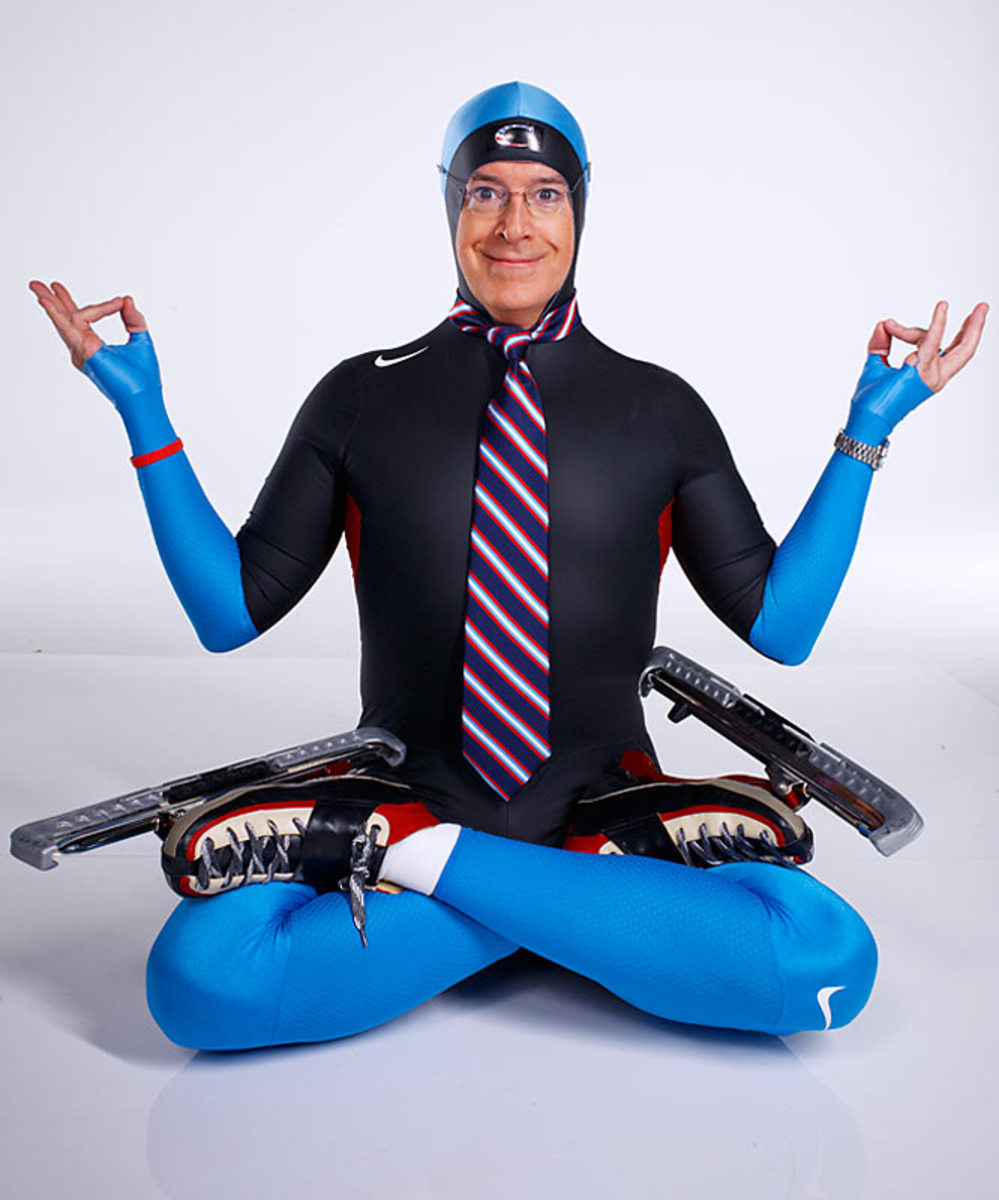
Stephen Colbert, host of "The Colbert Report," has announced his show will sponsor the U.S. Speedskating team for the 2010 Winter Olympics. He explains why in the cover story of the December 21st Year in Sports Media issue of SI. And because you can never, ever get enough Colbert, here are some outtakes of his cover shoot for the magazine.
